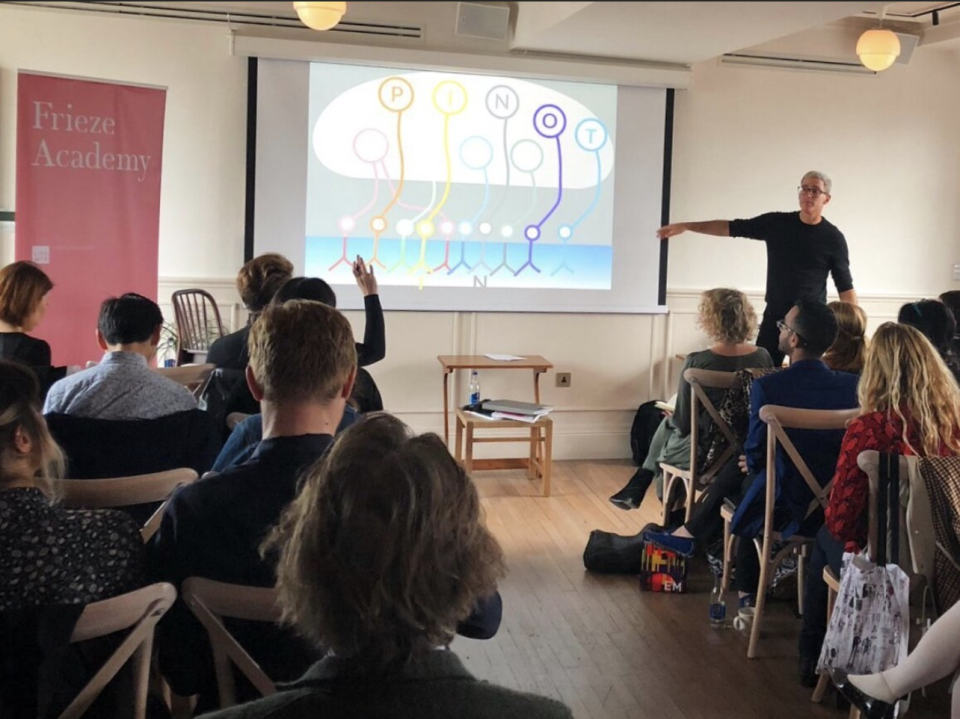People Who Have Recovered From COVID Are Sharing What It's Like To Live With Parosmia, A Condition Where Food Can "Taste Like Garbage," And It's Heartbreaking
Ten months ago, 20-year-old Natalia Cano tested positive for COVID-19. Now she reports having a completely warped sense of taste and smell.
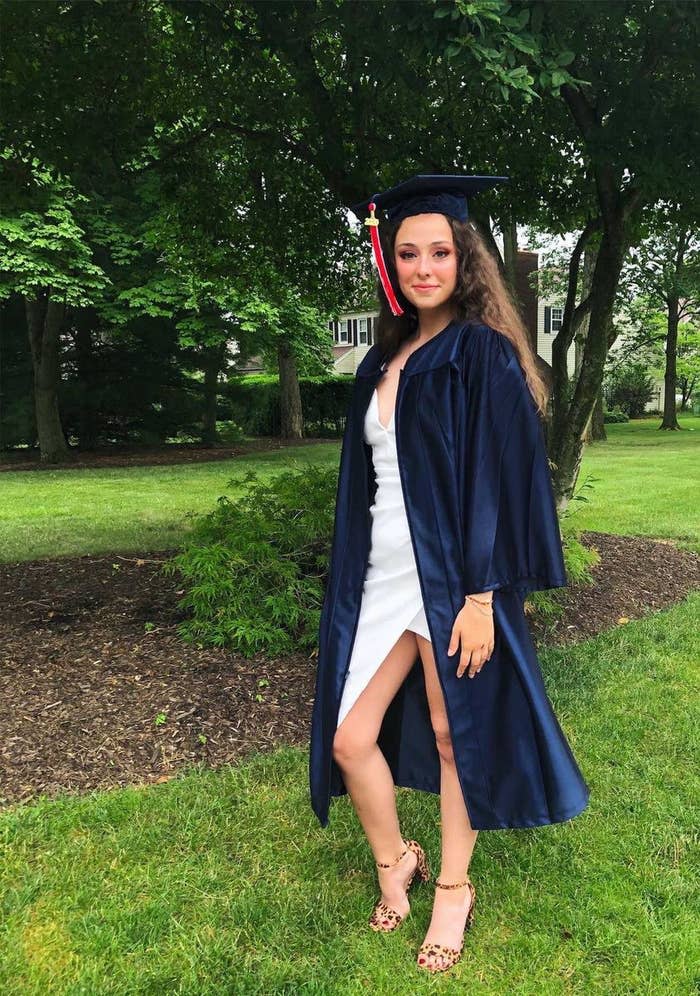
"I was working at my local grocery store in January, and unfortunately, that's where I got COVID," Natalia told BuzzFeed. "I felt really sick, but it was nothing extreme. It didn't feel like I was going to have any serious complications."
The weird part, though, is that Natalia had actually recovered from COVID a few weeks before her sense of smell and taste became completely distorted. It wasn't until about a month post-recovery that she started to notice these changes.
The symptoms that Natalia described are due to a condition called parosmia. "If you have parosmia, you may experience a loss of scent intensity, meaning you can’t detect the full range of the scents around you," according to Healthline. "People who have it can detect an odor that’s present — but the scent smells 'wrong' to them. For example, the pleasant odor of freshly baked bread might smell overpowering and rotten instead of subtle and sweet."
In a TikTok with over 13.6 million views, Natalia shared her experience with the condition. "I don't think anyone understands how much this affects your daily life. It's not just that foods taste rotten, it's that it tastes like garbage. It tastes like sewage. Gasoline, even," she said. "It was affecting me so much that I developed gastritis, where every single meal, I was throwing up bile."
@hannahbaked If u refused to wear a mask bc ur young & will recover - u might not. stay selfish & mask up @shleeeeeeeeee #parosmia #parosmiapostcovid #ROMWEnextgen
♬ All Too Well (Taylor's Version) - Taylor Swift
As Natalia points out in her TikTok, parosmia lasts an average of three months for most people. She's currently on month 10, but she's not alone.
Many people in the comments shared that they have also been dealing with similar complications for a long time.
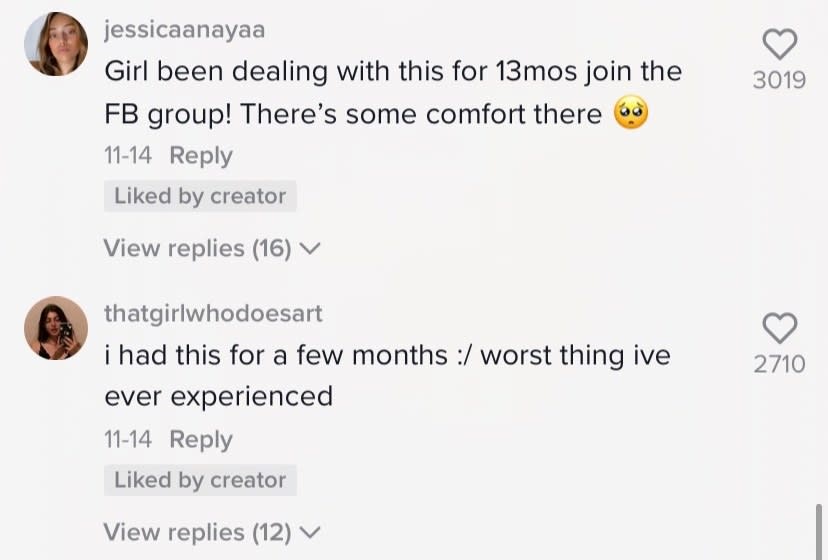
They described life-changing experiences.
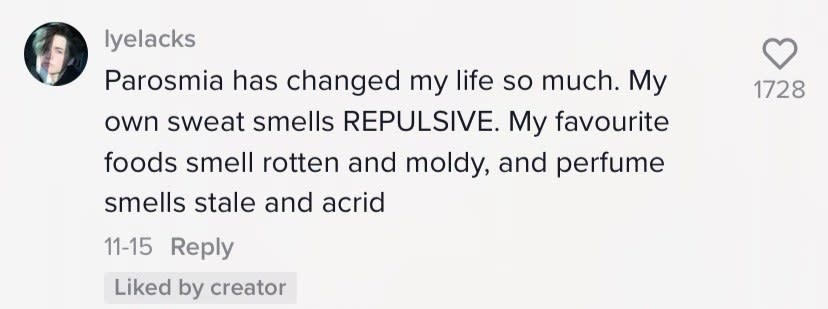
Natalia said she noticed that commenters who shared their experiences with parosmia had all followed similar timelines. "It was a really common theme that we had developed really intense symptoms of parosmia a month or two months after we had initially gotten COVID," she said. "I had no idea that [parosmia] was an after-COVID symptom until I got it."
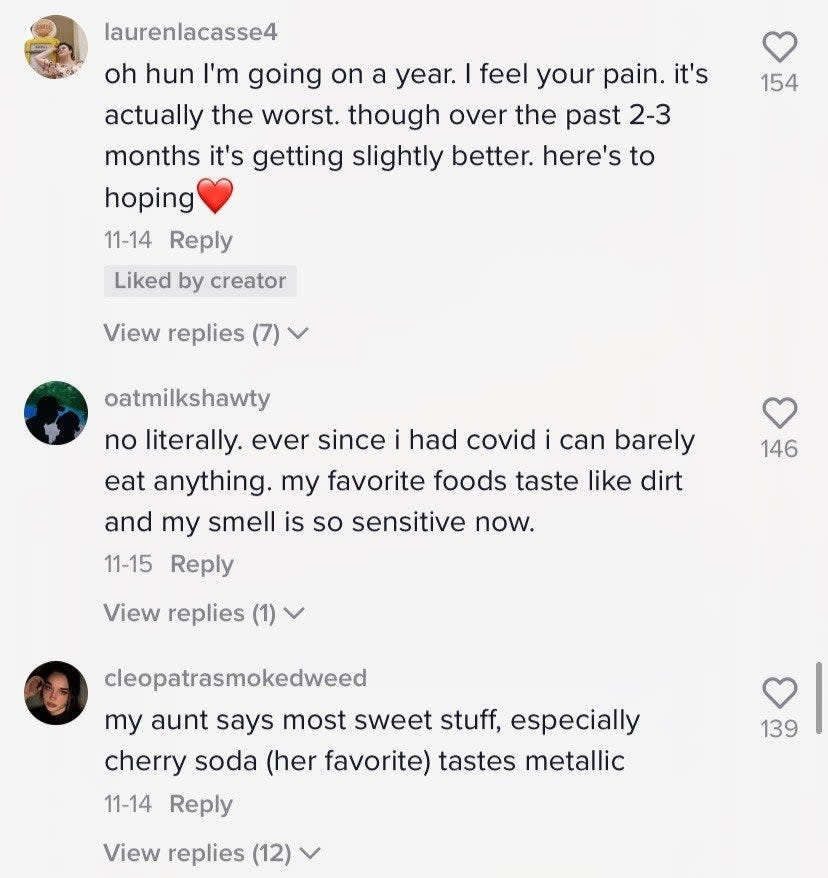
To gain a better understanding of the mechanics of parosmia, I spoke to neuroscientist Federica Genovese, PhD, a postdoctoral fellow at the Monell Chemical Senses Center.
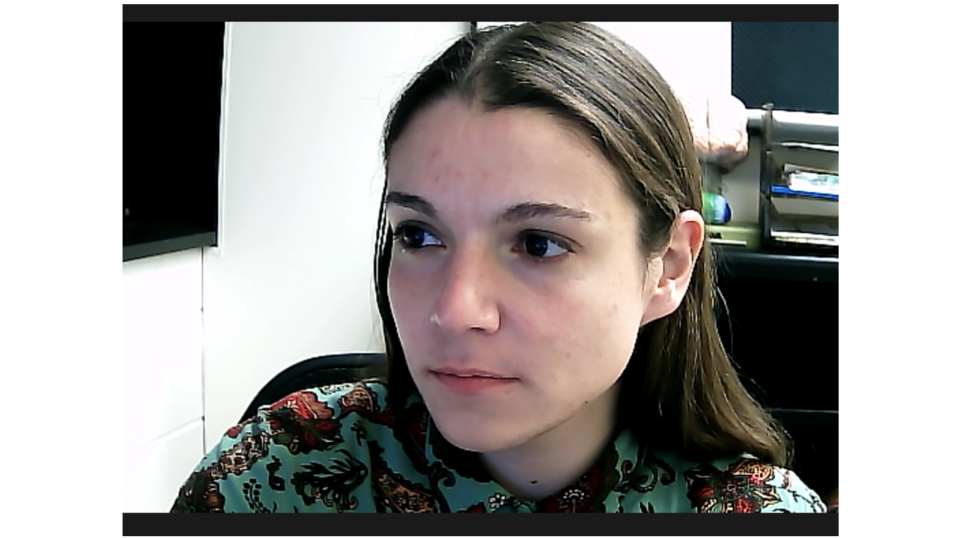
"Think of it like this: The entire olfactory system, or your sense of smell, is a computer. The brain is the CPU of the computer, or the main memory. The keyboard is what’s in our nose. And the keys on the keyboard are neurons, which are able to catch the odors," she told BuzzFeed. "What happens with parosmia is essentially that the keys are jumbled up and placed in the wrong positions. So when an odor comes into the nose, the neurons send the wrong signal to the brain.”
She also told BuzzFeed that people who have been experiencing parosmia for a long time should not lose hope. "Being able to smell anything at all is a good sign that neurons are regenerating. There are some people who, after 10 months, still cannot smell anything at all," she said.
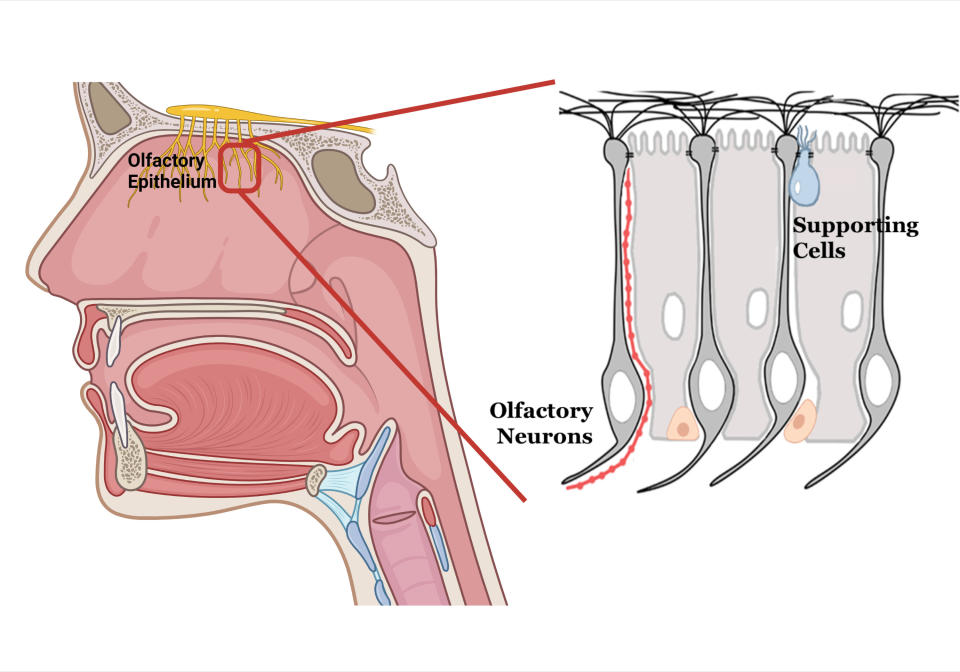
BuzzFeed also spoke with Dr. Simon Gane, a consultant rhinologist and ENT surgeon at the London Nose and Sinus Clinic who has done extensive research on smell loss. He says there are a few ways to diminish the intensity of parosmia. "There is a lot of very strong evidence now that using smell training is the best way to maximize improvement in the sense of smell after losing it in this way," he said. "The charity AbScent has almost a million people using their information and techniques, as well as their kits, to do this effectively."
Gane added that behavioral strategies may help. "Blocking or pinching the nose also prevents the misbehaving olfactory mucosa (the lining of the nose which detects the smells) from smelling the offending odorants," he explained. Medication may alleviate some symptoms as well. "Some early work now shows that using the solution of sodium citrate (citric acid, available in most pharmacies) in the nose may be helpful in reducing symptoms in the short term," he said.
